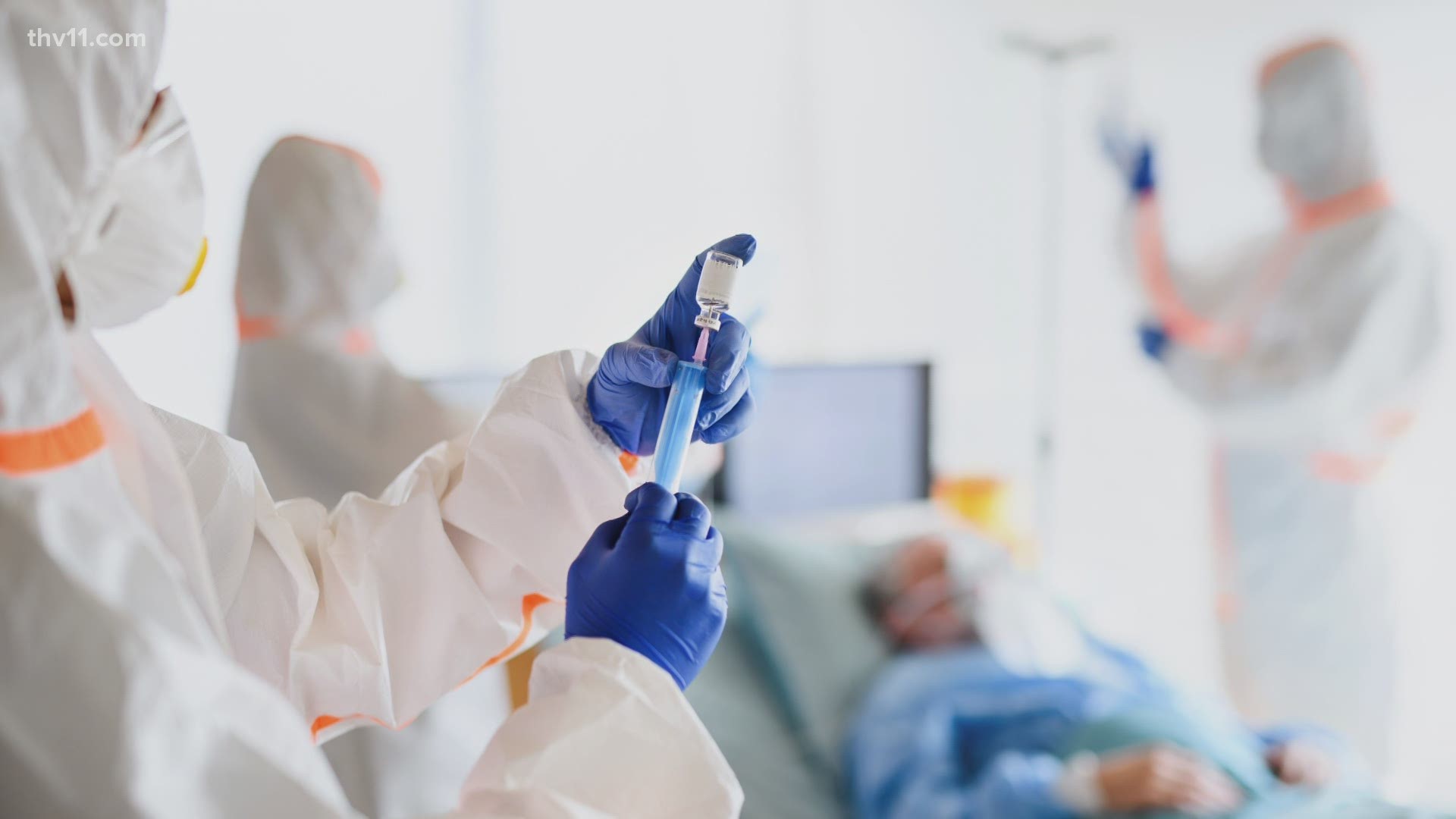LITTLE ROCK, Ark. — As we enter the 12th month of the pandemic in Arkansas, there are signs of hope. Doctors at UAMS are among researchers working to find treatments for COVID-19.
“It's an interesting time,” Dr. Laura James, Director of the UAMS Translational Research Institute (TRI), said. “It's very fulfilling and rewarding to be involved in this research because we feel like the information that we get out of these studies is really going to have an immediate impact on how we treat patients with COVID.”
The Translational Research Institute provides services and resources to ensure the translation of research into health care advances. According to James, the institute is primarily focusing on COVID-19 right now.
“We’re used to doing that type of work to understand: ‘do new drugs make a difference in patient outcomes?’” she said. “It’s something we do all the time. It’s just been much more concentrated on COVID in the last year.”
Currently, UAMS is part of a multi-site study that is testing existing medication to see if it helps patients with advanced COVID-19.
“We're trying to go as quickly as possible but stay in a safe research environment,” said Dr. Ryan Dare, an infectious disease specialist at UAMS.
Dare is overseeing the study at UAMS which focuses on patients in intensive care or entering the ICU.
“COVID – a very elusive disease here – has multiple parts of its illness stage,” Dare said. “The beginning of the illness starts off like a normal cold, where we consider the virus in charge.”
Dare said this study is designed to determine how best to manage the immune system response during the later stages of COVID-19.
“The immune system kind of takes over to fight the infection, and it creates such a robust response that the immune system ultimately ends up attacking the lungs.”
The clinical trial is testing three immune modulators. They are evaluated as add-on therapies in combination with remdesivir and other standards of care.
“This study adds in in a randomized controlled fashion placebo vs. potential study drug – an option of getting an immune modulator – into this late stage of illness in addition to the remdesivir and steroids to see if there is added benefit or not.”
Dare hopes to have sharable data within the next few months.
“We’ve improved our care a ton,” he said. “From the first four to six months of the pandemic to the last four to six months of the pandemic, the mortality rate of patients admitted to the hospital has dramatically decreased, so we know what we're doing is working. But unfortunately, the hospitals in our communities and our families are still plagued by this.”
The pandemic, according to James, has brought with it an urgency that is motivating researchers to work harder and more efficiently.
“If you look back at history, this is how science works,” she said. “When there is a challenge, I think the great minds and the scientists in the community get together and come up with the best treatment approach as possible and then those things have to be tested rigorously.”

